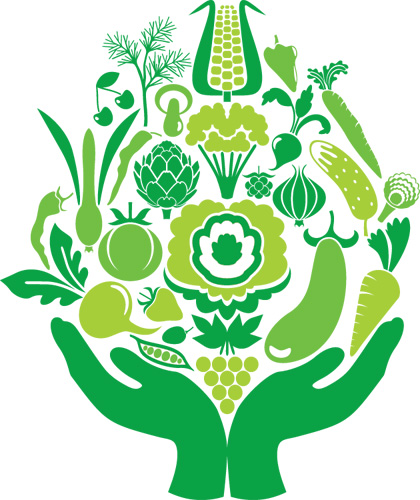 For many people around the country, Portland sounds like a place where the streets are paved with bacon-maple doughnuts, meticulously roasted coffee and artisan charcuterie. Yes, the city has a vibrant culinary scene, but it also is a hub of food banks, stores and eateries touting local- food sourcing, farmers markets and community gardens.
For many people around the country, Portland sounds like a place where the streets are paved with bacon-maple doughnuts, meticulously roasted coffee and artisan charcuterie. Yes, the city has a vibrant culinary scene, but it also is a hub of food banks, stores and eateries touting local- food sourcing, farmers markets and community gardens.
BY LUCY BURNINGHAM
 For many people around the country, Portland sounds like a place where the streets are paved with bacon-maple doughnuts, meticulously roasted coffee and artisan charcuterie. Yes, the city has a vibrant culinary scene, but it also is a hub of food banks, stores and eateries touting local- food sourcing, farmers markets and community gardens.
For many people around the country, Portland sounds like a place where the streets are paved with bacon-maple doughnuts, meticulously roasted coffee and artisan charcuterie. Yes, the city has a vibrant culinary scene, but it also is a hub of food banks, stores and eateries touting local- food sourcing, farmers markets and community gardens.
If Marylhurst University in Lake Oswego has its way, graduates from a new master’s program will help better shape and guide those kinds of businesses and nonprofits. The Food Systems & Society master’s program, which launches in September, will enroll 15 students a year on a low-residency basis. The students will meet four times a year on campus and do the rest of their coursework online.
The degree was designed for midcareer professionals hoping to pursue what Patricia Allen, chair of the new program, says are new types of jobs that are being developed “day by day.”
Will professionals with food-related jobs be willing to invest in this type of higher education?
Definitely, says Ron Paul, a private consultant and restaurateur. Paul came up with the idea for the degree and proposed it to Marylhurst. The university hired DHM Research in Portland to assess interest and led a discussion between 25 local academics, government leaders and business owners, which pushed the idea forward.
Nationally, there are food-policy programs at Boston University and New York University. Chatham University in Pittsburgh offers a master of arts in food studies, and the University of Vermont runs a graduate program in food systems.
In Portland, for the most part, food courses have focused on culinary training or entrepreneurial product development, such as the “Getting Your Recipe to Market” class at Portland Community College. And while Portland State University offers a graduate certificate in sustainability, Marylhurst’s new program will occupy a unique niche on the West Coast.
In the larger financial picture for the university, 15 students paying about $27,000 at current tuition rates to complete the program isn’t a gamechanger. But the program meets other goals, like advancing the university’s national profile and creating a new kind of employee for eager employers, says Marylhurst spokeswoman Shirley Skidmore.
Paul says a student from PSU’s College of Urban and Public Affairs master’s program put it this way: “A master’s in food policy issues is like urban planning was 25 years ago. No one knew how important it was.”



